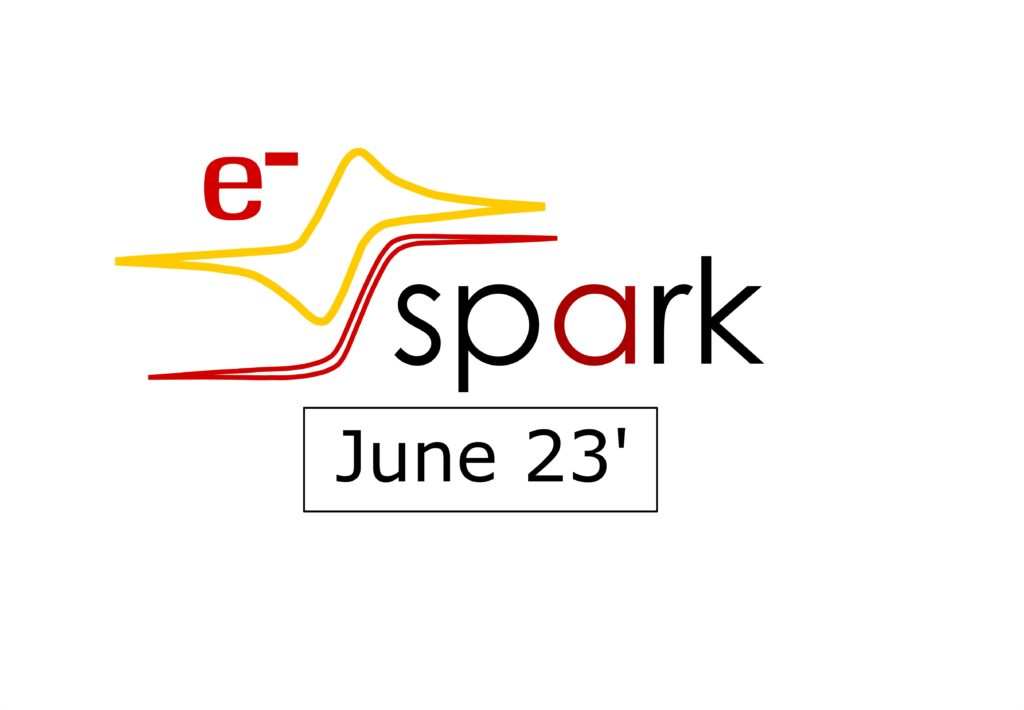
Between the 18th and 24th of June, for the third and last time in the framework of the NAWA Spinaker project, our department hosted 25 students from all over the world (16 nationalities!) during the e-SPARK summer school on experimental electrochemistry.
At the beginning of 2022 scientific committee of the school was established with Emilia, Steven, Marcin Szymon Filipiak, Wojtek Nogala, Martin Jönsson-Niedziółka, and Bren Mark Felisilda, each being responsible for developing one or two experiments. After countless hours of discussions, experiments were first tested with the members of the scientific committee and later with local students from IPC PAS.
There were some minor changes to the schedule. Still, in general, all three schools, including this one, started with a barbecue on institute grounds, during which participants got some goody bags with a lab coat and a book of scripts and had a chance to meet the organizers in a more informal setting.
Each day of the week, classes were held from 9-13 and 14-17 (sometimes 18), and students were divided into five groups, all having classes simultaneously. After the 5-day training, students should be able to prepare their electrochemical setups and perform basic electroanalytical experiments. The curriculum covers the following:
Experimental design, led by Steven (this year exceptionally with the help of Dominik Korol), during which students learn to prepare their own reference electrodes and about two and 3-electrode setups, the importance of counter electrodes and noise. In the afternoon, the class is continued by Bren, which teaches how to use a pseudoreference and internal reference and how oxygen and water can influence the non-aqueous measurement.
Cyclic voltammetry and Pulse techniques were given by Martin, with the help of his Ph.D. student Julia Maciejewska-Komorowska, and postdock Meen (Suchanat Boonkaew). Students prepare their screen-printed electrodes, learn about differences in signal between redox probes absorbed on the electrode and in solution, cleaning of glassy carbon electrodes, and how capacitance influences different techniques.
Electrochemistry in hydrodynamic systems is given by Marcin. During the morning session, students prepare their ITO electrodes using a laser plotter/etching technique and cure PDMS-based microchannels. Everyone has a chance to test their setup in flow, and in the end, a demonstration of a rotating disk electrode, which can provide similar information, is given.
Reference electrodes and a microfluidic setup are not the only souvenirs, as during one of the days, students also prepare their platinum microelectrodes. The class was first developed by Wojtek Nogala, later given by Ariba Aziz, and in this edition, by a new tutor Vishal Shrivastav. During this edition, students also had a chance to choose their afternoon class and perform with Wojtek Scanning Electrochemical Microscopy (demonstration) or a more hands-on class of Impedance Spectroscopy (EIS).
Emilia was responsible for the “application day” and, together with Martyna and Ela, provided a tutorial on Ion Selective electrodes, teaching how to prepare today’s standard solid-state electrode and a low-cost version of the traditional one with internal electrolyte, comparing their sensitivity, linear range, and selectivity. During the afternoon, Emilia and Karthika teach how to prepare a glucose biosensor, test its analytical parameters and evaluate the impact of interferents.
The program is packed with knowledge and integrational activities; apart from Sundays’ barbecue, on Monday, students were given a tour around the old town and had the chance to try some typical treats from Warsaws’ Praga district curiously served in jars.
On Wednesday, we held a poster session, including typical Polish dishes like barszcz, pierogi, bigos from young cabbage, śledź, and many more.
The school ended with kayaking on Wkra, now by many considered a Polish national sport.
Thanks to all the students for the fantastic time and to all the organizers for keeping the spirits up during the whole week.
Let us hope we can organize more editions of e-SPARK in the following years!
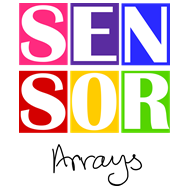

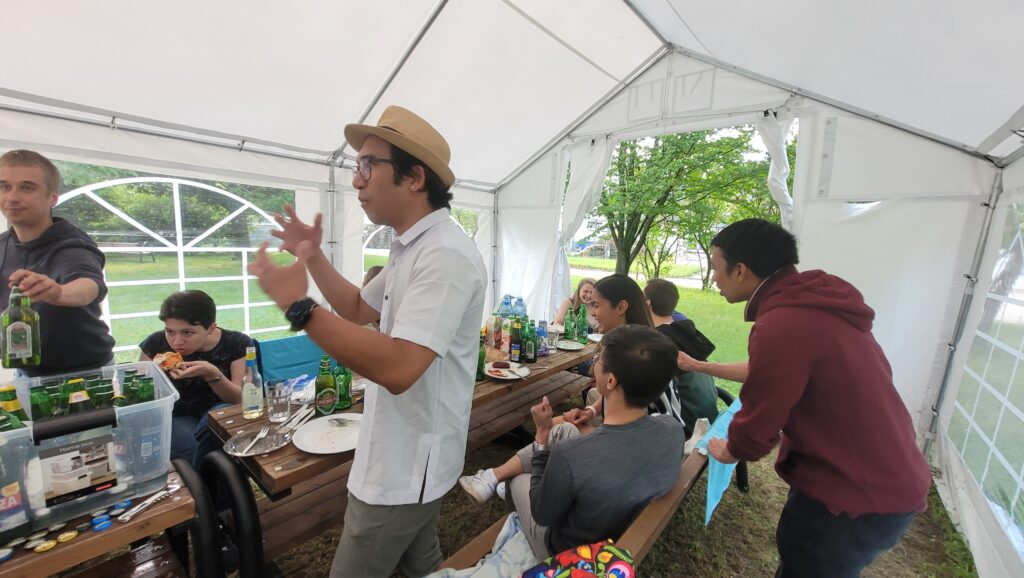
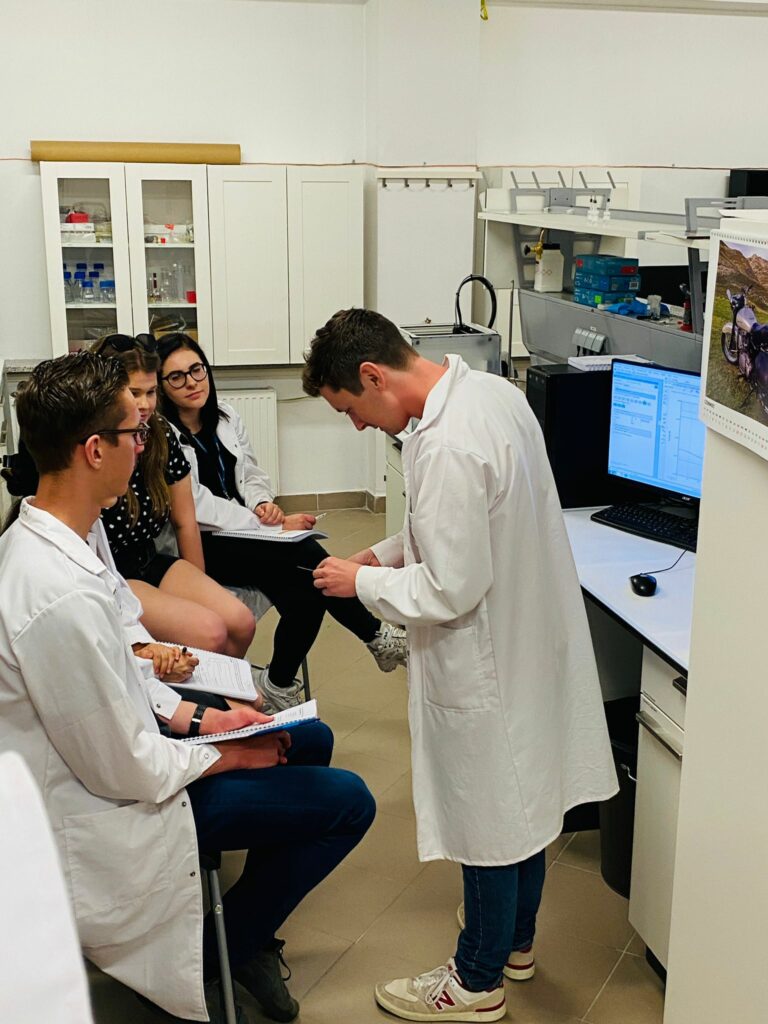
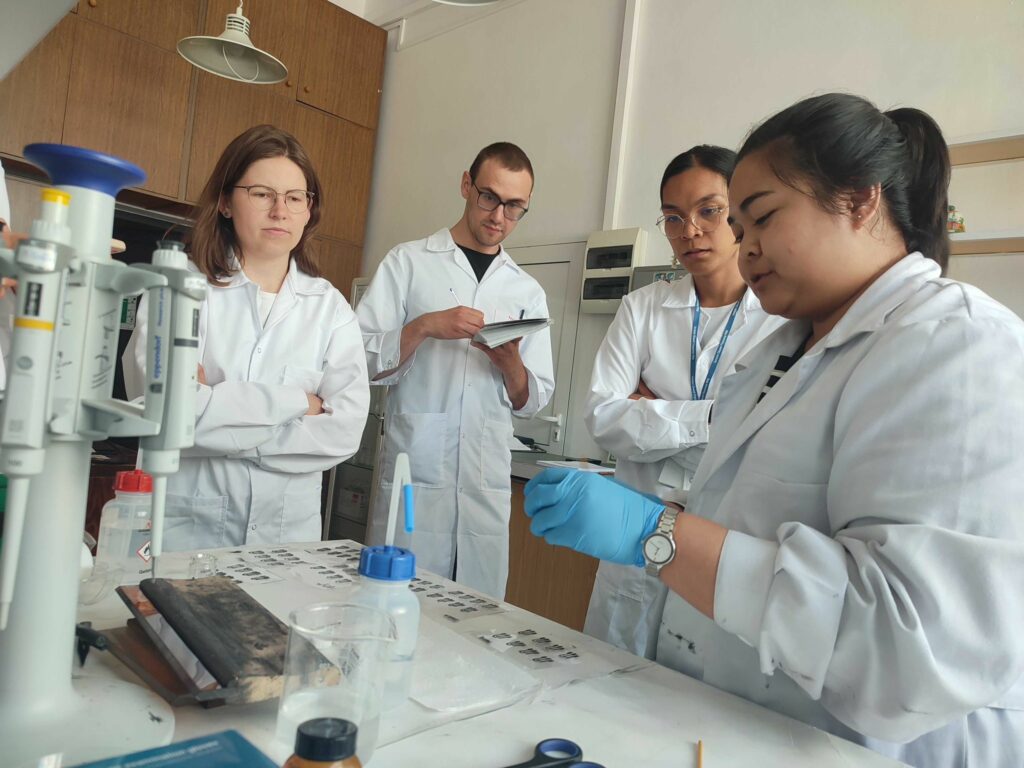
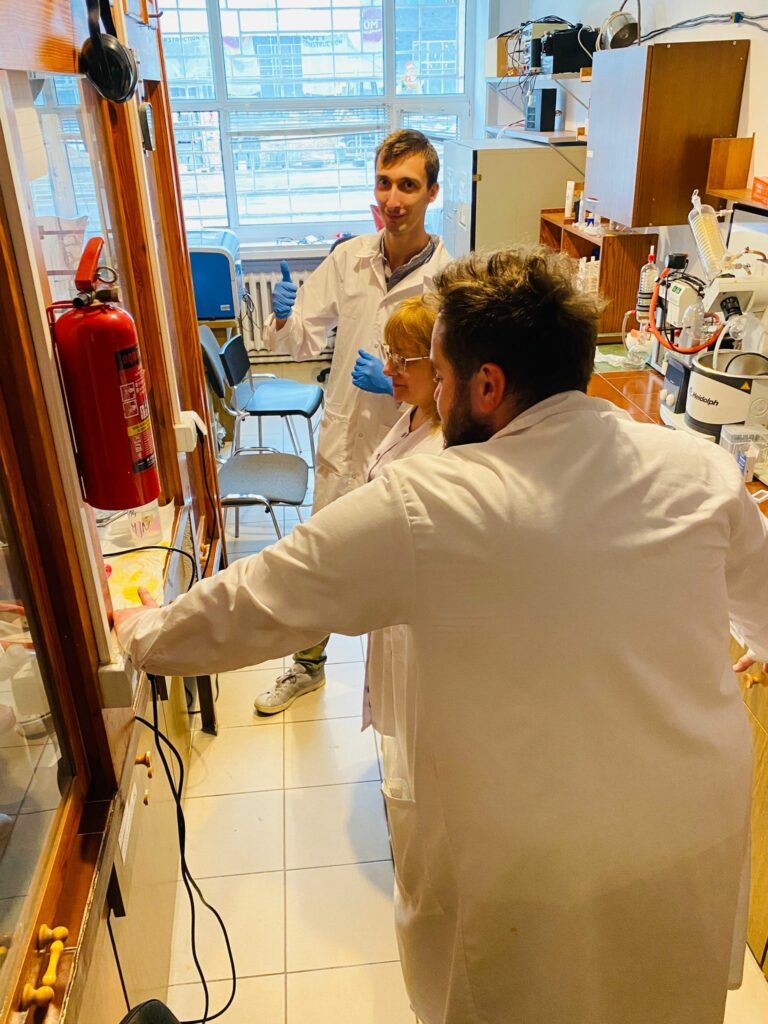
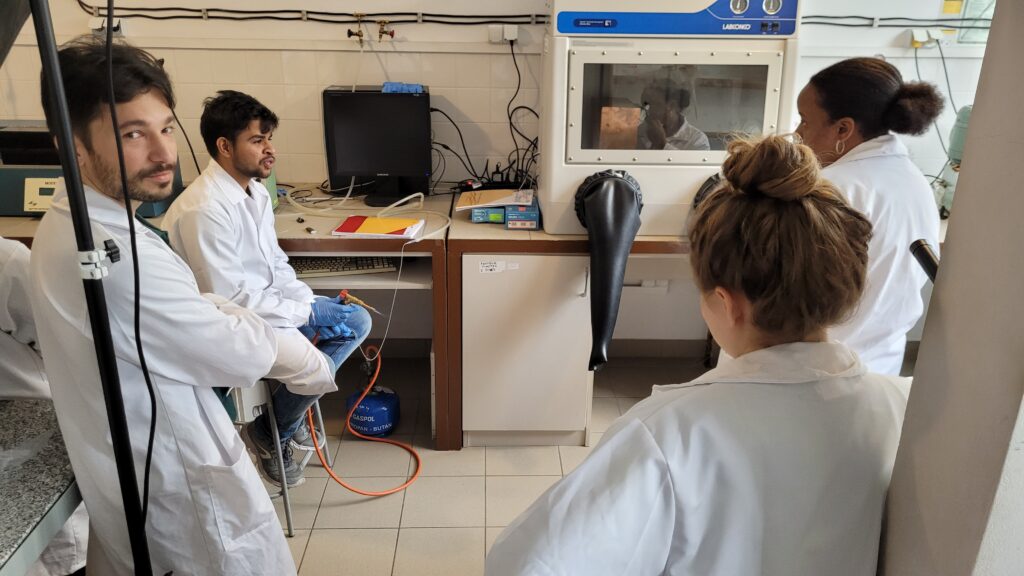
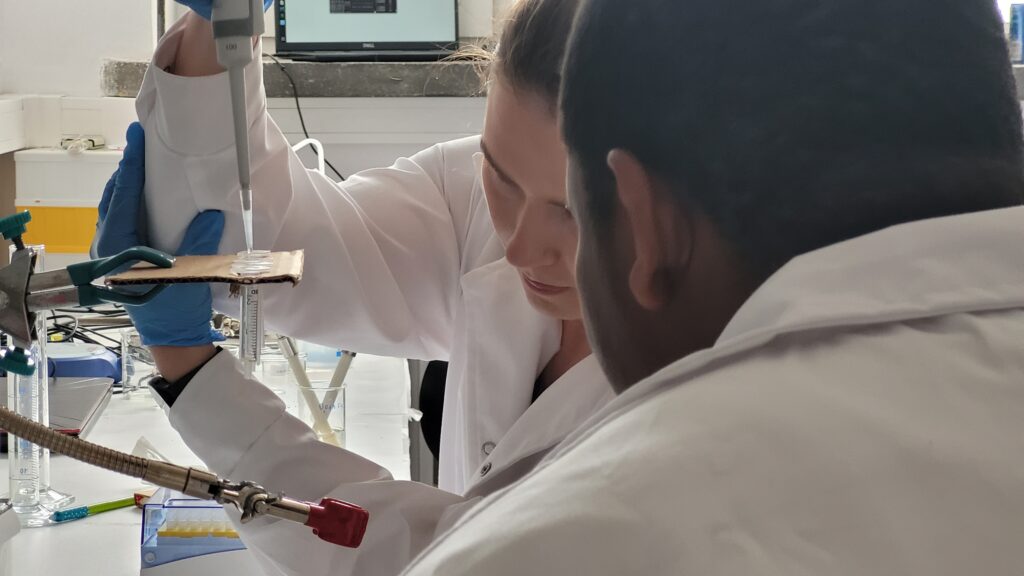

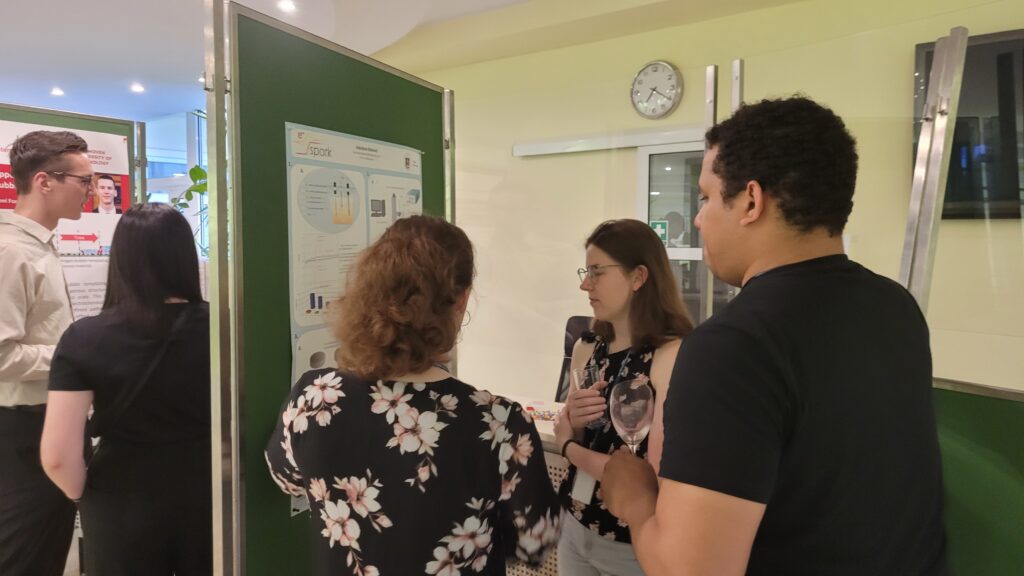
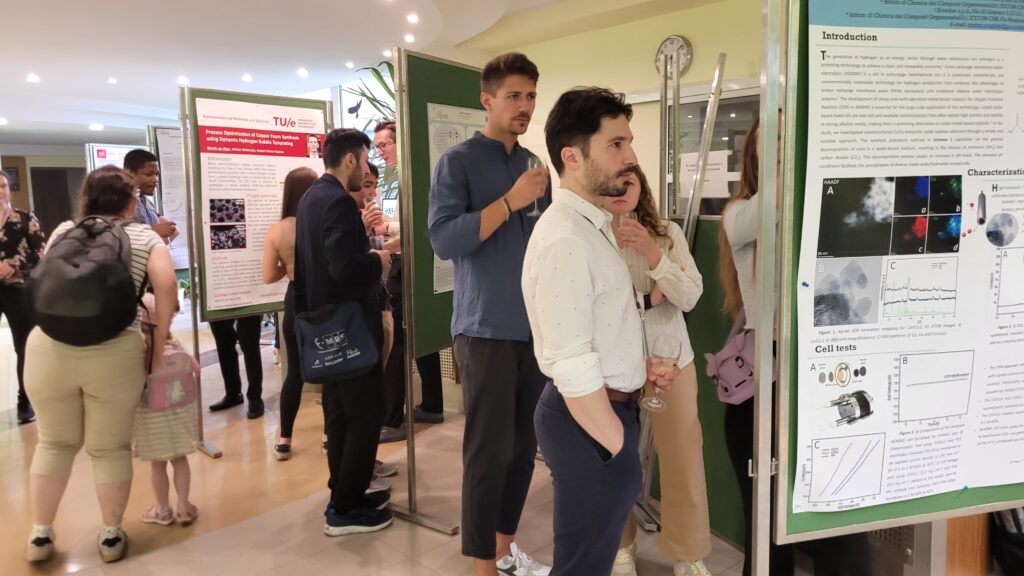
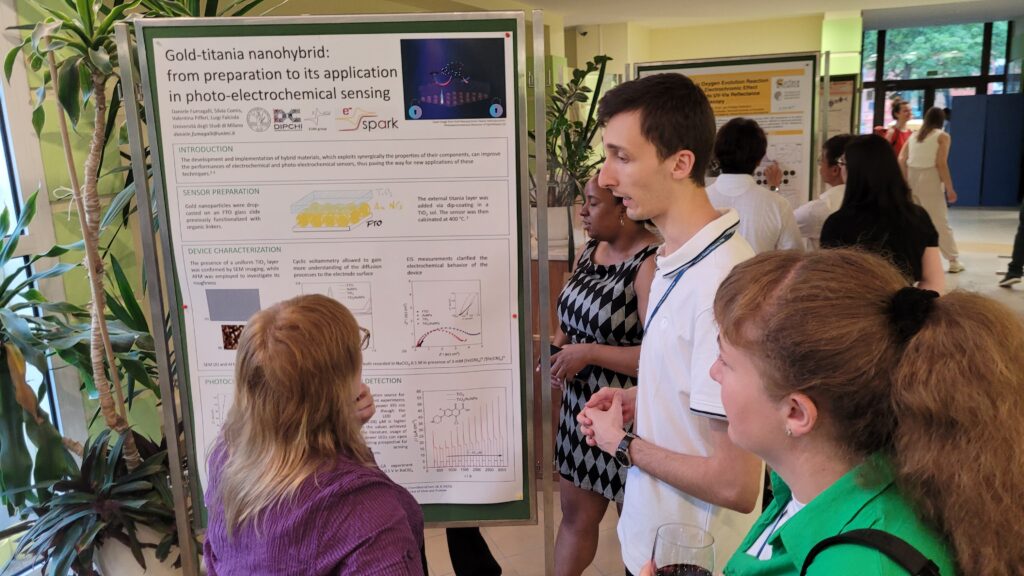
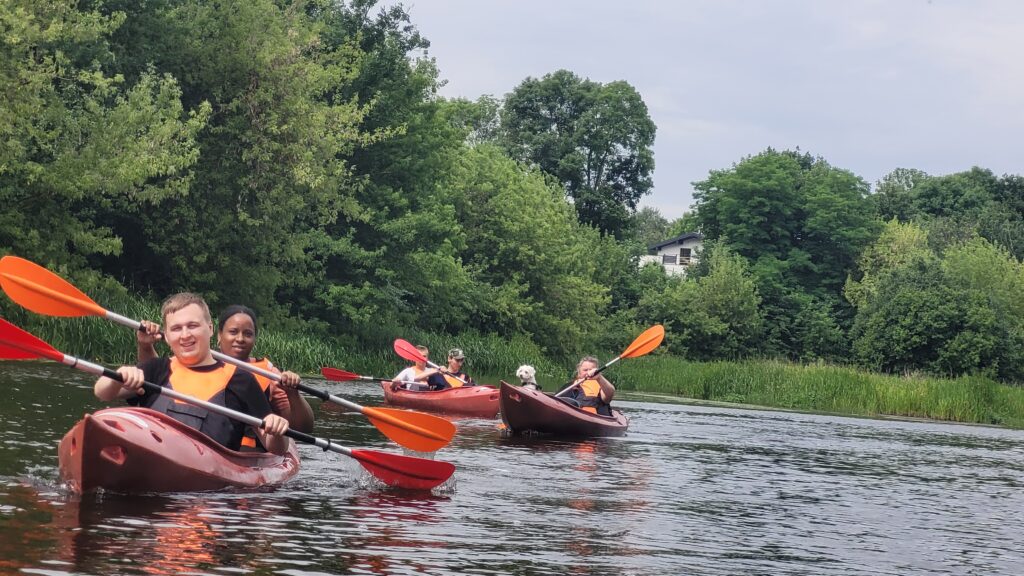
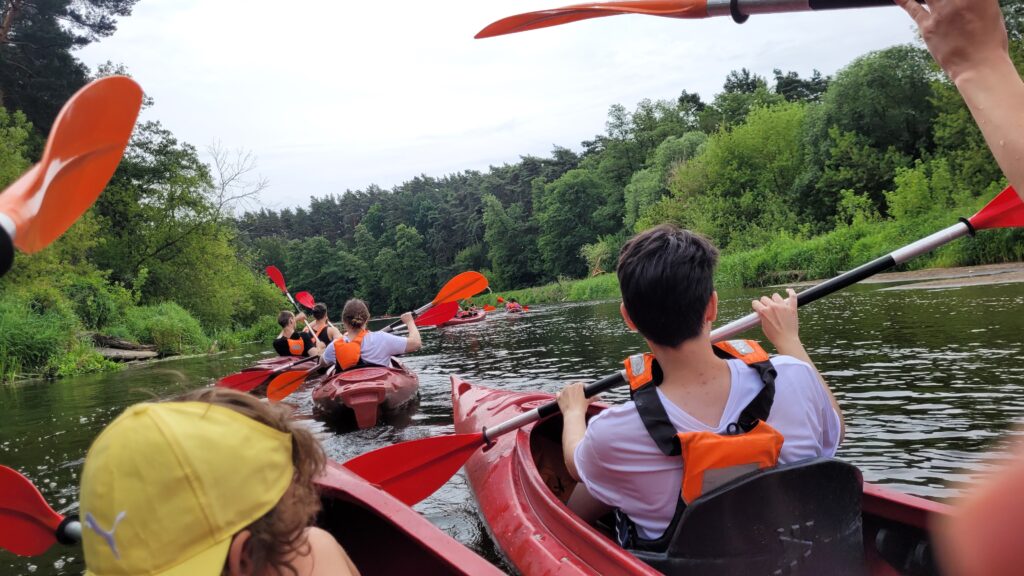
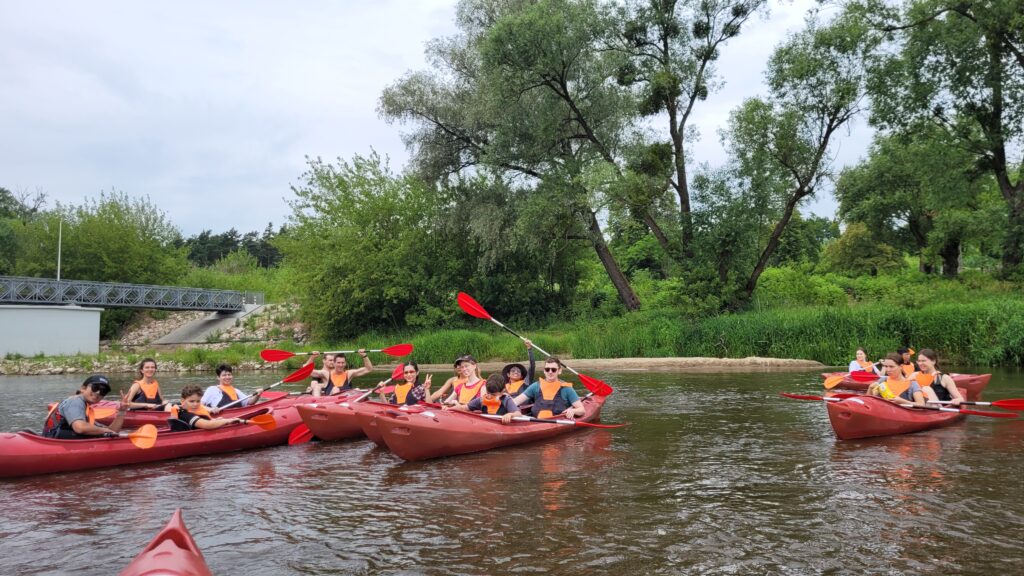
1 thought on “3rd edition of the e-SPARK summer school”